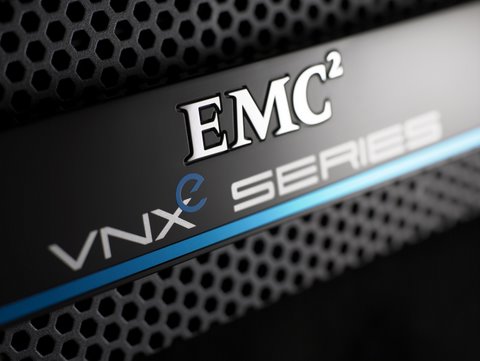EMC targets mid-market, plans to undercut NetApp

EMC on Tuesday will roll out its largest launch ever with 40 new storage technologies and products aimed directly at undercutting NetApp's footing.

In an interview, Jeremy Burton, chief marketing officer of EMC, said that the company "is attacking a market where it didn't have any presence." Indeed, a move into the midmarket could be all upside for EMC and provide a path into its higher-end systems. Burton likened the VNXe systems to the Mini Cooper in BMW's line-up. For EMC, the VNXe systems represent an entire new market that's affordable.
Burton, who seems to have a flair for showmanship, said EMC will feature stunts like having a 5th grader set up a storage array to make its point. The main target for EMC's push is NetApp. "NetApp is strong in the $10,000 to $30,000 segment," said EMC.
NetApp, however, just upgraded nearly its entire line-up. EMC and NetApp are the two fastest growing storage providers.
The VNXe (the "e" is for entry) systems include:
- The ability to provision storage for hundreds of Exchange mailboxes, or 1TB VMware data store in less than 2 minutes.
- Double storage capacity on the fly.
- Automated support.
- Support for file and block-based storage.
- A compact footprint.
- The ability to scale to 120 drives at 240 TB.
The higher-end VNX systems are designed for larger enterprises. Both VNXe and VNX are run by EMC's Unisphere software. VNX combines EMC's Clariion and Celerra systems into one platform. The systems are based on the Intel Xeon 5600.
Of the systems, the VNXe family is the most notable from a strategic perspective. EMC is hitting an untapped market and has to build up a channel network to sell the systems. In addition, EMC's move will into the midmarket may ding Dell, a long-time partner that sells EqualLogic systems.
"Dell has decided that it wants to compete more than partner. We're cognizant of the fact that customers don't want to be caught in the middle of vendors, but clearly we are a lot more competitive with Dell than we used to be. We have a good understanding though to keep customers happy," said Burton.
In a nutshell, EMC is targeting NetApp, but isn't going to sweat any collateral damage to Dell, HP and IBM. EMC is basically doubling down on storage in a move to pressure IT vendors trying to sell a full stack.
What remains to be seen for EMC is how it builds its partner network. EMC's ability to build a channel to target smaller companies is probably the biggest risk to its VNXe effort.
Midmarket customers are generally skeptical when large vendors move downstream. Burton is confident EMC can navigate the new landscape. "A lot of vendors cut down an enterprise product and put a new badge on it," said Burton. "VNXe is new." Burton acknowledges the challenge with tackling the midmarket, but note that EMC has spent three years developing its VNXe systems and has refined channel training and teamed up with distributors like Ingram Micro and Tech Data.
Among other key items in EMC's launch:
- EMC is launching a series of Data Domain products. If you recall, NetApp tried to buy Data Domain last year, but was thwarted in a bidding war with EMC. Specifically, EMC launched a new Data Domain Global Deduplication Array that incorporates new controllers. EMC boasts having the fastest deduplification system on the market. EMC said its Global Deduplication Array supports IBM Tivoli Storage Manager.
- The company launched the EMC Data Domain Archiver, a long-term retention system for backup and archive. The Data Domain Archiver can backup as much as 9.8TB per hour.
- EMC's new software for its EMC Symmetrix VMAX systems include a new version of FAST (Fully Automated Storage Tiering).
Related: Dell acquires Compellent for $960 million, lands its storage consolation prize